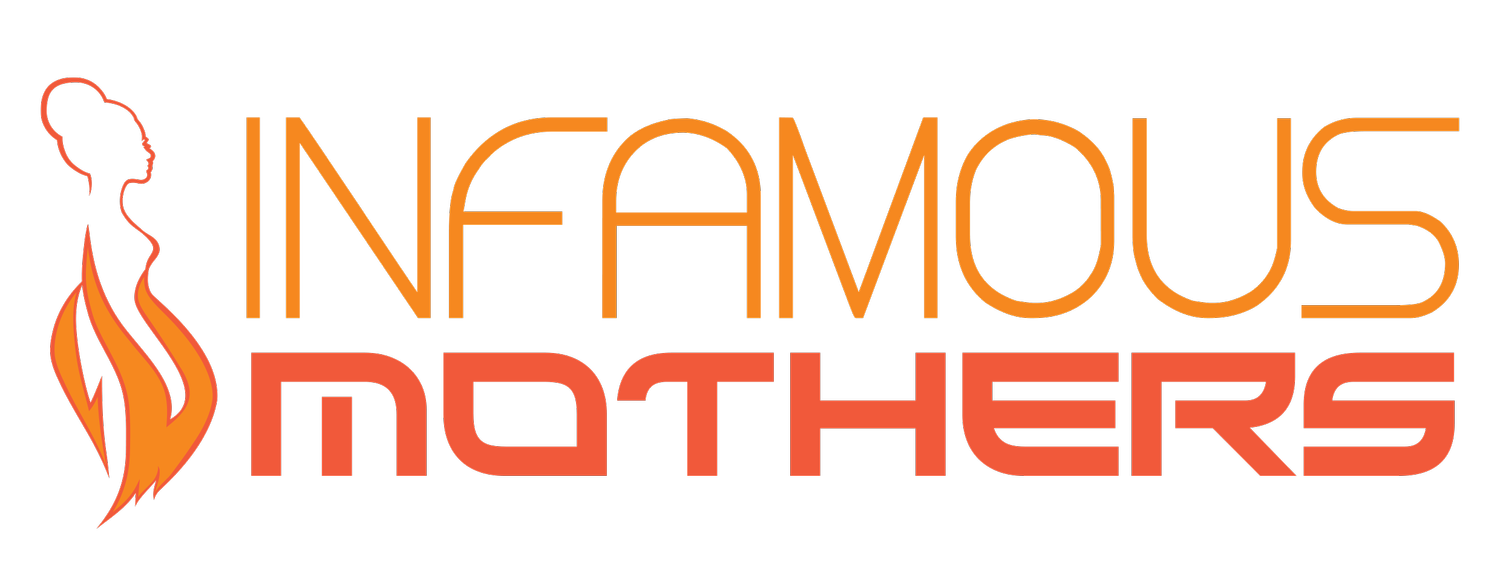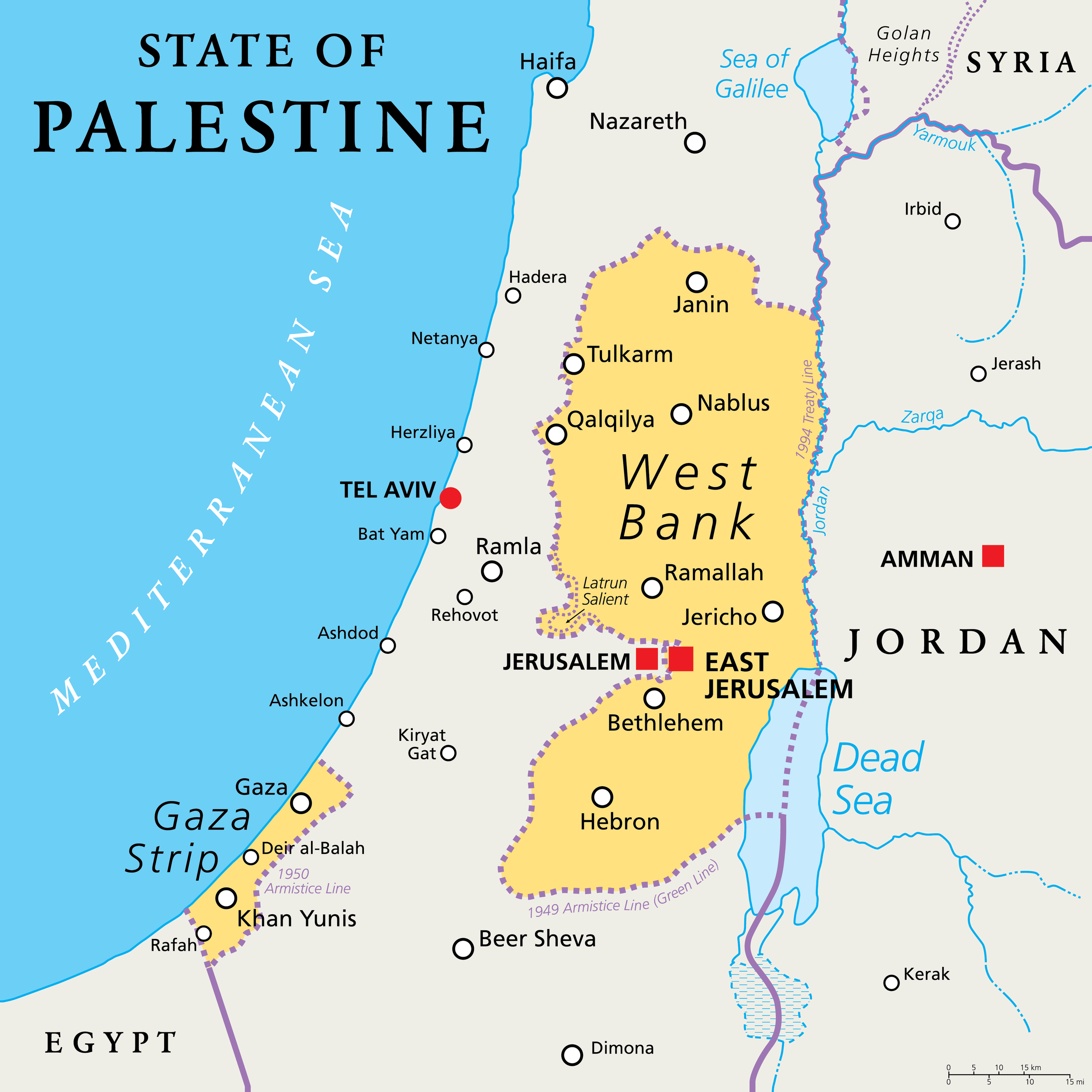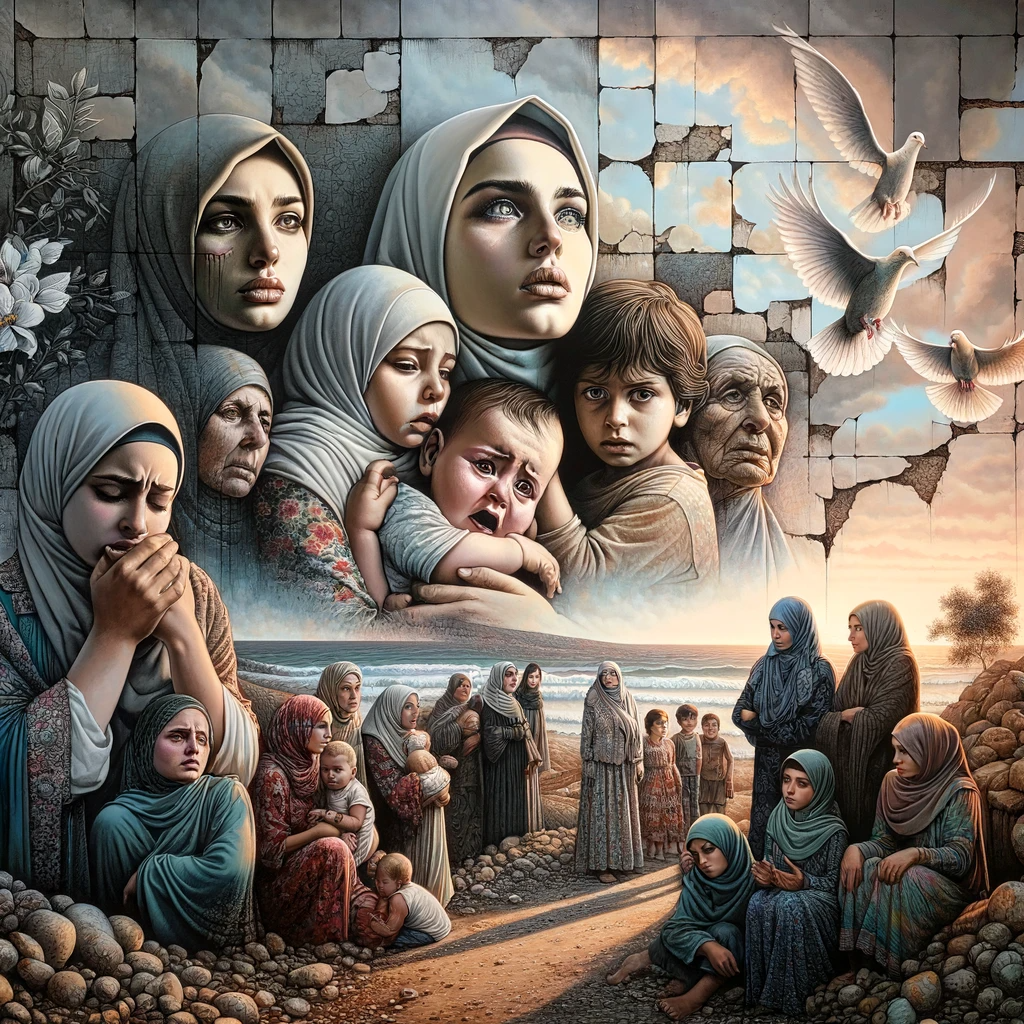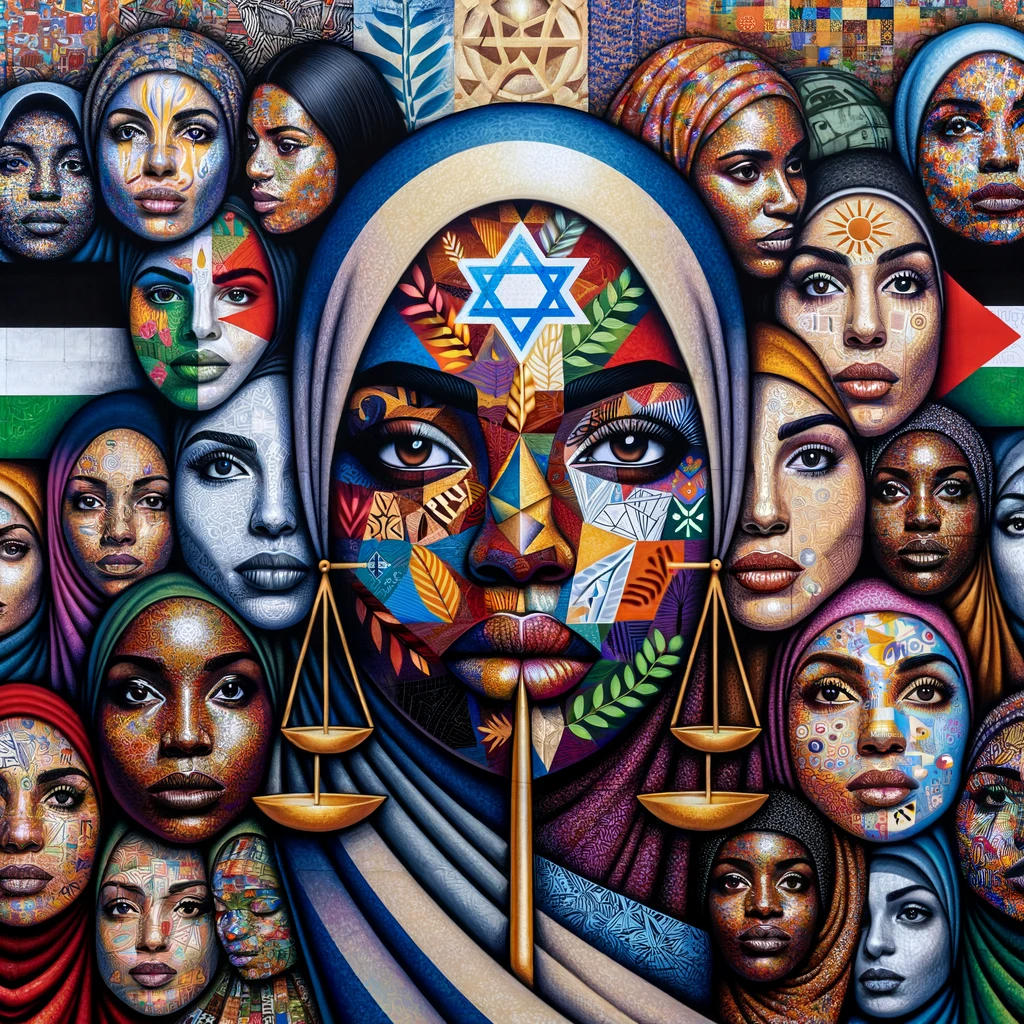Empathy Across Borders: Infamous Mothers' Focus on Israel-Palestine Conflict (A Beginner's Guide)
Last week in CEO's Corner (a column of the Wanted newsletter) we discussed our ambitious goal of helping 2 million women worldwide transform their lives, reinforcing that we are a global entity focused on Infamous Mothers everywhere. Given this, it's vital for us to be informed about international issues impacting women and children, such as the ongoing Israel-Palestine conflict. While this topic frequently appears on social media and in news discussions, many of us lack a basic understanding of the issues at hand, leading to avoidance of the topic. Recognizing this gap, we've decided to feature the Israel-Palestine conflict in the Justice column of our Wanted newsletter this month, aiming to foster awareness and meaningful dialogue within our community.
In this blog post, we are doing three things. First, we are offering a simple 10-point breakdown of the issues as we understand them. Second, we are offering a 10 point-breakdown about how this conflict may impact the lives of women and children living through this strife. Third, we are offering 10 reasons why women in the IMverse should care.
The Context of the Conflict: As We Understand It
1. Origins of the Conflict: The conflict originated from a dispute over land claims in the region, with both Jewish and Palestinian groups asserting historical and national ties to the area.
2. Palestinian Aspirations: The Palestinian desire for statehood emerged following periods of rule by external powers, including the Ottoman Empire and later the British Mandate.
3. British Mandate and Immigration: Post-World War I, Britain governed the region, implementing policies that facilitated increased Jewish immigration, leading to demographic shifts and heightened tensions.
4. Formation of Israel and Subsequent Conflict: Israel's establishment in 1948 coincided with a conflict involving neighboring states, resulting in significant displacement of Palestinian populations.
5. Governance in Palestinian Territories: Currently, the West Bank is administered by the Palestinian Authority, while Gaza is governed by Hamas.
6. Israeli Settlements: Israel has established settlements in the West Bank, a practice viewed by many international entities as contrary to international law and an impediment to peace negotiations.
7. Peace Efforts: Numerous peace initiatives, including the Oslo Accords and the Camp David talks, have been undertaken but have yet to resolve the core issues of the conflict.
8. Security Barrier: Israel constructed a barrier around the West Bank, for security concerns. This construction is seen by Palestinians as a means of segregation and control.
9. U.S. Involvement: The United States has been actively involved in mediation efforts, though some of its decisions, including those under President Trump, have sparked controversy and mixed reactions.
10. Recent Developments: The current Israeli government, which holds conservative views, has expressed intentions to expand settlements in the West Bank, complicating the prospects for peace negotiations.
Something to Think About: Ten Ways This Conflict May Impact the Lives of Women and Children
This image symbolically represents the profound and multifaceted impacts of the Israel-Palestine conflict on the lives of women and children in the region. It captures the complexity of emotions and the enduring human spirit amidst adversity.
The Israel-Palestine conflict has had profound and multifaceted impacts on the lives of women and children in the region. Here are some key aspects:
1. Psychological Impact: Both Palestinian and Israeli children, as well as women, are exposed to high levels of stress and trauma. This can result from direct exposure to violence, the loss of family members, and the constant state of uncertainty and insecurity. The psychological impact includes anxiety, depression, and post-traumatic stress disorder (PTSD).
2. Education and Development: Children's education is often disrupted due to the conflict. Schools in conflict zones may be damaged or closed, and the journey to and from school can be dangerous. This disruption impacts children's learning and development, with long-term effects on their future opportunities.
3. Health and Nutrition: Access to healthcare can be limited in conflict areas, affecting both women and children. Pregnant women may not receive necessary prenatal care, and children's routine vaccinations and health check-ups can be missed. Additionally, food insecurity and malnutrition can become prevalent due to disruptions in supply chains and economic hardship.
4. Physical Safety and Security: Women and children are at increased risk of physical harm during military operations and other violent incidents. They are also vulnerable to other forms of violence, including domestic violence, which can be exacerbated by the stresses of living in a conflict zone.
5. Economic Impact: The conflict often leads to economic instability, affecting families' ability to provide for their children. Women, as caretakers, face significant challenges in securing basic needs for their families, including food, shelter, and healthcare.
6. Social and Cultural Impact: The conflict shapes the social environment in which children grow up. It affects their perceptions of identity, community, and the 'other'. This can lead to a perpetuation of conflict attitudes and biases across generations.
7. Displacement and Refugees: Many families, particularly in Palestinian territories, have been displaced due to the conflict. Living as refugees or in temporary shelters greatly impacts the quality of life for women and children, affecting their access to essential services like education, healthcare, and safe living conditions.
8. Child Labor and Exploitation: Economic hardship can force children into labor, often in unsafe conditions, to support their families. This further deprives them of education and a normal childhood.
9. Women's Roles and Empowerment: The conflict has also seen women taking on more active roles in their communities, including participation in peacebuilding efforts. However, they also face gender-based violence and discrimination.
10. Future Generations: The enduring conflict affects the aspirations and worldview of young people, shaping their attitudes towards peace, coexistence, and their future roles in society.
The Israel-Palestine conflict deeply affects the everyday lives of women and children, impacting their mental health, education, physical safety, and overall well-being. The ongoing nature of the conflict means that these impacts are persistent and evolving, with long-term consequences for individuals and communities.
Ten Reasons Why Should the Infamous Mothers Community Should Care
The Infamous Mothers community places a huge emphasis on supporting women who have been marginalized due to their life stories or societal labels. While this is one reason why we should care about what’s going on, here are several others:
1. Shared Experiences of Marginalization: Many of us have faced societal judgments or hardships, and we can empathize with the women and children affected by the Israel-Palestine conflict. These women and children are often marginalized not only by the direct effects of conflict but also by the global community's response (or lack thereof) to their plight.
This image symbolically represents the shared experiences of marginalization among Black women and those affected by the Israel-Palestine conflict. It features a montage of women and children from diverse communities, overlaid with symbols that convey their resilience and the challenges they face.
2. Empathy and Solidarity: We are grounded in empathy, understanding, and solidarity with those who face adversity. Supporting women and children in conflict zones aligns with these values, as it extends empathy and solidarity to a global level.
3. Advocacy for Women and Children: Our community can be a powerful voice in advocating for the rights and well-being of women and children globally. Understanding the specific challenges faced by those in the Israel-Palestine conflict can inform and strengthen our advocacy efforts.
4. Global Awareness and Education: Being informed about global issues, including the Israel-Palestine conflict, can broaden the perspectives of our community members. It helps in understanding the complexities of women’s and children's experiences in different cultural, political, and socio-economic contexts.
5. Empowerment Through Knowledge: Educating ourselves about international conflicts can empower the women in the Infamous Mothers community. It can provide us with knowledge to engage in informed discussions, raise awareness, and potentially influence policies or aid efforts.
6. Intersectionality: The principles of intersectionality recognize that various forms of inequality and discrimination (such as gender, race, class, and nationality) intersect. Understanding the unique challenges faced by women and children in the Israel-Palestine conflict can deepen our community's appreciation of intersectional struggles.
The image represents the concept of intersectionality, highlighting the collective struggles of women globally, including those in the Israel-Palestine conflict and Black women. It’s important to note that at the center of the image is a woman who is both black and Jewish, probably an Ethiopian-Israeli mother, who is facing her own set of struggles. Overall, this image features a tapestry of female faces from diverse ethnicities, each overlaid with symbols of their struggles, set against a backdrop representing global unity and cultural diversity.
7. Networking and Global Community Building: Engaging with global issues offers opportunities for networking and building relationships with other organizations and communities. This can lead to collaborative efforts and mutual support in addressing various forms of injustice and marginalization.
8. Personal and Community Growth: Learning about and engaging with issues outside of our immediate experience can contribute to personal growth for members of the Infamous Mothers community. It can challenge us to think critically and compassionately about global issues.
9. Role Modeling: By showing concern and taking action, our community can set an example for others, including the next generation, about the importance of being informed and compassionate global citizens.
In essence, for a community like ours, which is built on principles of support, empowerment, and overcoming adversity, caring about the impact of the Israel-Palestine conflict on women and children aligns with many of our core values. It allows us to extend our empathy and advocacy on a global scale and reinforces our commitment to addressing injustice and marginalization wherever it occurs.
Conclusion
As we reflect on the complexities and the human cost of the Israel-Palestine conflict, especially in relation to women and children, it becomes clear that the repercussions extend far beyond the immediate geopolitical disputes. The psychological, educational, health, and social impacts are deep and enduring, underscoring the urgent need for empathy, understanding, and concerted efforts towards peace.
The role of Infamous Mothers in this context is not just to be informed but to be a beacon of hope and solidarity. We stand with those who face unimaginable challenges every day and recognize the strength and resilience of women and children in conflict zones. This understanding fuels our commitment to make a difference globally and to push for a world where every woman and child, irrespective of where they are, can live in safety and dignity.
By exploring these ten crucial aspects of the conflict's impact, we aim to not only educate but also inspire action and change. Whether it's through raising awareness, supporting humanitarian efforts, or advocating for peace, every step we take brings us closer to a world where conflicts like these are a thing of the past. Let's carry this knowledge forward and use it as a force for good, in our communities and beyond.
#EmpathyInAction #GlobalSisterhood #InfamousMothers #PeaceForAll









